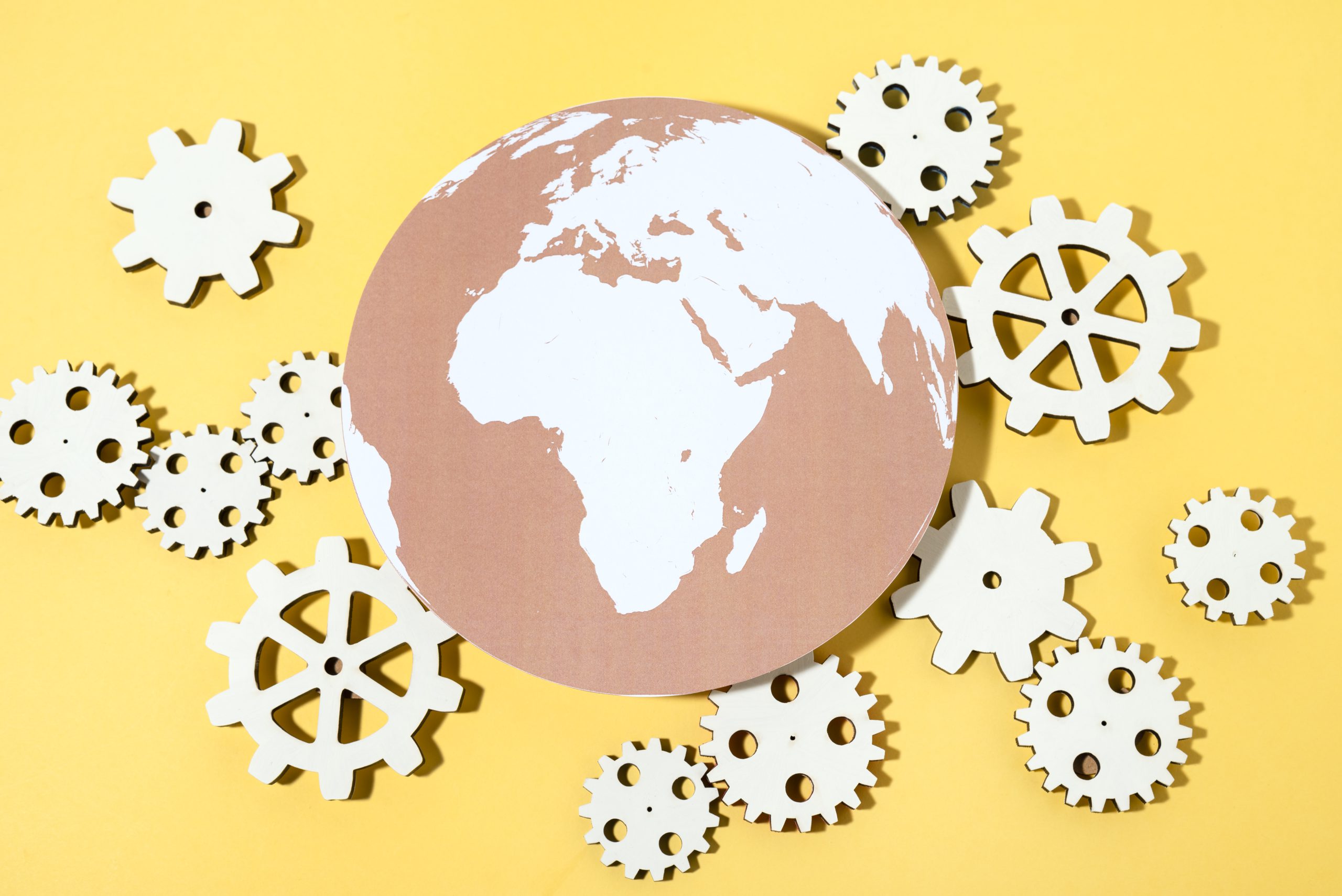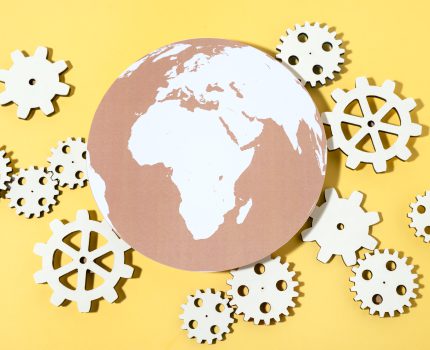With more than 70 ongoing global conflicts and crises, understanding the impact on people’s lives and the psychological toll on civilians in these areas is of great importance. In a recent episode from 31 October 2024, What’s Unsaid, a podcast from The New Humanitarian, explores the question: In Crises, Can Life Ever Be Normal? Host Ali Latifi, from Kabul, Afghanistan, discusses this topic with reporting fellows for The New Humanitarian: Zeina Shahla, a journalist in Syria, and Iván Reyes, a Venezuelan journalist and photographer.
What does ‘normal’ mean to you? How would you define ‘normal life’ in a place where life is under constant threat?
“We deal with conflict, economic instability, and threats of violence… All this can make for a strange duality because for us life is normal – but it’s also really not.” – Ali Latifi
‘Normal’ Life Under Constant Threat?
For many living in conflict zones, maintaining a sense of normalcy while simultaneously being aware of potentially life-threatening consequences is a delicate balance. The host raises an important question to their interlocutors about how they manage to hold onto a sense of normalcy in their lives while constantly facing the possibility of life-endangering events.
Shahla, living in Damascus amid ongoing conflict, explains how she tries to create “safe spaces” by gathering with friends to help preserve her mental balance. She also finds solace in activities like attending theater plays, where young actors continue to work despite challenging conditions. These moments remind her that “life must go on and we are trying to do something.” However, Shahla acknowledges the inherent difficulties of such circumstances, given the lack of control over surrounding events, and admits that it sometimes makes her question the meaning of life. Reflecting on this, she notes,
“You reach a point when you think, Okay, what’s the meaning of anything in life? (…) You feel: Okay, I can die, so maybe I should enjoy somehow my life, or try to do whatever I can before this bomb falls on me or on my house, unfortunately.”
Psychological and Emotional Impacts
Purkayastha (2024, p. 92) explains that the relationship between human rights advocacy and humanitarianism can be both complementary and contradictory, as defending human rights has sometimes been used to legitimize actions that lead to major humanitarian crises. However, when such crises do occur, the emotional and psychological effects can leave a lasting mark on those who live through them.

Both Shahla and Reyes, as reporters in conflict zones, reflect on the emotional and psychological aspects of prolonged crises, particularly the feeling of guilt and the challenge of finding ways to continue their lives despite these feelings. Reyes highlights the emotional conflict he experiences as a journalist in Caracas who, on the one hand, tries to lead a regular life by engaging in enjoyable activities, yet, on the other, is required to report on those directly affected by conflict while remaining constantly aware of others’ suffering. Shahla supports this sentiment, expressing how she used to feel much guilt, asking herself, “How can I go out to any place while people are dying, being displaced, or disappearing?” Over time, she says, “I started to think, Okay, it’s not good to feel that guilt…but it’s also not good to let it go, because a lot of people still feel guilty that they are living and others are not.”
The feelings of guilt they describe align closely with a psychological response known as survivor guilt, where one feels guilt for having survived a situation in which others have suffered or died. MacKenzie and Zhao (2023, p. 2708) explain that survivor guilt often arises when someone’s good fortune feels overshadowed by others’ misfortune, describing it as “finding ourselves on an island of good fortune in an ocean of bad luck.” They further categorize survivor guilt into two types: luck guilt, which arises when someone benefits from a disparity that is purely due to chance, and solidarity guilt, which arises when this disparity violates a sense of solidarity among group members (p. 2716).
Resilience Amidst Crisis
Despite the emotional burden, both Shahla and Reyes demonstrate resilience in their determination to continue working and living in their countries, with no thoughts of leaving. However, they both experience the personal impact of population loss, as many of their friends and family have moved abroad. At times, this leaves them with a sense of isolation, and they remain concerned about the ongoing brain drain that negatively impacts their countries.
They touched on the media representation of their countries, which are often portrayed in stereotypical ways. Such portrayals overlook the complexities and resilience of everyday life in conflict zones. Another critical issue is how global attention often shifts away from prolonged crises when new ones emerge, leaving these situations outside the focus of the media. Latifi raises a key point: “And that’s the thing, is, usually when the world stops paying attention is when everything happens that leads to the next time that they want to pay attention.”
Finally, Latifi concludes,
“You can try and live a normal daily life, but in the back of your mind, there’s always this fear: What if I get stopped? What if someone gets upset? What if I’m somehow breaking a law and they throw me in jail, or yell at me, and they get upset?”
This statement paints the reality faced by many, who carry an underlying tension and fear that makes normalcy often feel inseparable from anxiety. Yet, all three of them agree on one thing – they don’t remember the last time they actually felt normal. For some of us, stability and a sense of normalcy are privileges we rarely question; for millions worldwide, they are aspirations pursued with courage every day.
Listen to the full podcast here.
Eni Buric


Hello Eni,
Thank you for this, I find it such an important topic! And I find it frustrating to read academic texts in which the author mentions their own ‘privilege’ in the face of insecurity and conflict. Firstly because I think the author should focus on discussing the matter at hand and secondly because saying such a thing is either dishonest or illusionary: there are conflicts and attacks almost all over the world today and climate change is a threat to everyone. In addition, this kind of discussion of ‘privilege’ tends to ignore serious human rights violations such as gender-based violence and violence against children, present everywhere. And thirdly, does the author know what will happen to them tomorrow? No. Indeed we must find ways to live and make life worth living even in the face of such hardships and risks. Just like our ancestors had to. Perhaps we will never be more safe than today. Perhaps the idea of making the world ‘safe’ was a utopia illusion.
Hey Karin, your perspective adds much depth to this discussion. Thank you for sharing it!
Hi Eni, very well written! This reminds me a lot of development studies and how we define “development” varies for different groups. This is similar to defining “normal” – what we consider normal would be very different for the folks you describe in your post. But I wonder sometimes what definition “normal” we should strive for – certainly not one filled with conflict and danger. But either way this ties really well into development. Thank you for sharing and I look forward to listening to the entire podcast!
Thank you, Jessica! You’re absolutely right, what we consider “normal” can vary greatly depending on context and perspective. Sometimes maintaining a sense of “normalcy” in difficult situations simply means holding onto certain routines, but this is far from the “normal” (rooted in safety, stability, equality, etc) we should strive for.